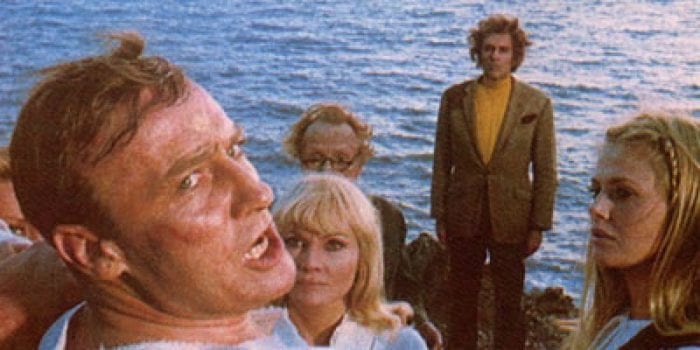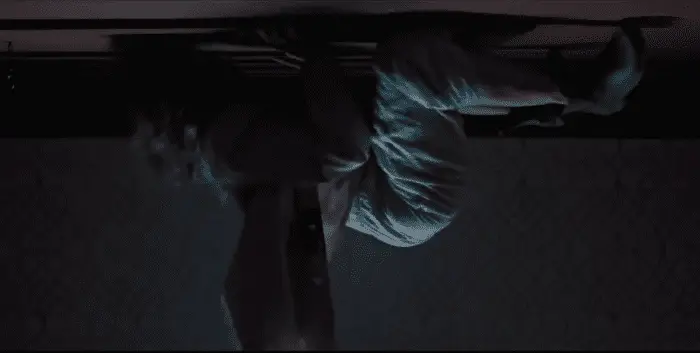It Isn’t Love, It Isn’t Hate, It’s Just…Something Else
I feel it’s important to say upfront that I don’t dislike either Hereditary or Midsommar. I neither love nor hate them, rather I enjoy and appreciate certain elements of each, while simultaneously finding other elements…less endearing. Beyond the more mundane objections and reservations, those ranging from bloated runtimes to excessive exposition to jarring and unwelcome tonal shifts, there is one issue I have with both films that runs deeper.
And that is the way in which each film makes a spectacle of the grief expressed by people in the deepest throes of loss. Now, horror, and horror films in particular, have long traded in the spectacular; it is no doubt a cornerstone of much—though not all—of the genre. More specifically, the genre has often been accused of making a spectacle of violence (especially violence against women) and it has been explicitly likened to pornography in this regard. There is an undeniable element of truth in the accusation; however, while I can concede its accuracy as a value-neutral observation, I largely disagree with the thinking behind it which necessarily equates violent spectacle with an immoral celebration of violence.
As such, I am loath to put forth any argument against films within the genre that relies on problematizing spectacle (and particularly against two recent, high-profile films). However, and perhaps for no truly good (i.e., objective) reason, these films’ use of grief as fodder for cinematic spectacle somehow strikes me as far more—and I do hesitate to use the word—offensive than the use of violence in similar ways and for similar purposes.

Ari Aster: He’s Basically Mike Nichols or Noah Baumbach
Even if each of Aster’s films did not so clearly lean into their genre elements—becoming very much full-bore horror films in the process—and instead remained the family/relationship dramas that Aster purportedly believes they are, there is still something that feels exploitative in the way each film seems to revel in showing us, in painstaking detail, characters suffering through the worst possible psychological and emotional trauma. If anything, this approach feels at odds with the nature of actual drama (it might, perhaps, qualify as melodrama) and much more in line with the often highly spectacular quality of horror. So, even in those moments where we can assume that Aster believes he is doing drama (i.e., what we might call “pure drama” if only for lack of a better term) he really isn’t; he’s doing horror (itself arguably a kind of heightened drama, and thus distinct from “pure drama”). And, in and of itself, that’s fine.
Or, it might be, if Aster fully committed to this very specific kind of horror (that is, emotional horror), but he doesn’t. In both films, and particularly in Hereditary, he soon starts shading into much more tried-and-true (conventional, even) forms of cinematic horror until eventually, we find ourselves watching a film that has entirely ceased to be about anything resembling “emotional horror” and instead has settled into the comfortable zone of “things that go bump in the night” and shock horror. Again, there’s nothing inherently wrong with that, but there’s something about the path he takes to get there that just bothers me. It feels like a cheap bait and switch to present what is ostensibly a horror film rooted in the pain of loss and the so often fraught dynamics of familial and romantic relationships only to take a hard turn into more traditional horror terrain. In the case of Hereditary, it is a swerve from would-be treatise on grief and the family unit into supernatural, everything and the kitchen sink horror with a heavy dose of Rosemary’s Baby; in Midsommar, an ersatz meditation on the pitfalls of love betwixt millennial grad students turns to gross-out, freak show horror with an even heavier (i.e., borderline lethal) dose of The Wicker Man.

Good Grief, Ari Aster
Interestingly, it is these overt horror elements—decapitations and their aftermath; heads being squashed by large mallets and the aftermath of said squashing; people floating through the air and loitering up in the high corners of dark rooms; people spontaneously combusting; and deformed men in human skin masks—that have traditionally been considered the stuff of exploitation filmmaking (note: I love all these things, and if they are in fact exploitative, well in that case, “Exploit on!” I say).
However, in the context of Aster’s films, these feel like the less exploitative elements; really, what makes them feel exploitative is their being placed alongside the films’ more “serious” and “dramatic” elements i.e., the grief porn. Before the naked cultists and before Gabriel Byrne burns, Hereditary spends a good chunk of its runtime in grief porn mode (don’t get me wrong, very finely acted grief porn; kudos to Toni Collette). In Midsommar, the grief porn is largely front-loaded, with the film’s opening sequence being arguably the most horrific and unsettling thing we see in the entire film. I suppose one could argue that in each film, the grief is necessary to get us to the destination that Aster has laid out (and not just to get us there, but to get us there in the state that Aster wants—needs, even—us to be in for the rest of the film to be effective).
That’s certainly arguable, but it doesn’t change the fact that the films’ use of grief never amounts to anything more than that—it is strictly the use of grief, it is a means to something else. There is no exploration, no comment, no essential thematic link (that I can see, at least), there is only…spectacle. So, in this sense, there is no practical difference between Toni Collette wailing in agony over her daughter’s death and Toni Collette floating several feet above the ground, staring at her son as she saws through her neck with a length of piano wire. And, really, there should be. To conflate the two in any way strikes me as supremely crass.

Aster’s Next Project, a Remake of Man Getting Hit by Football, Will Examine the Psychological Aftermath of Groin Injuries
And that Aster quite overtly does conflate them is never more evident than in Hereditary, in which during one scene of Toni Collette’s tortured sobbing, he inserts a shot of the daughter’s decapitated head sitting in the middle of the road covered in ants. Is this quick visual shocking? Absolutely. Does it have anything to do with grief? With any kind of “family drama”, even the darkest kind imaginable? Absolutely not. It’s effective as horror, but it also cheapens a moment meant to depict a mother’s expression of profound grief (albeit a depiction which is itself leering and borderline exploitative).
So, while normally, I wouldn’t find such a visual cheap in and of itself, here I do. And while this cheapness doesn’t ruin either film for me and while I can appreciate other elements of them, such as Aster’s unquestionable technical skill as a filmmaker, I think I would hold him and these films in higher regard if he were more honest about what they ultimately are. The truth is that both Hereditary and Midsommar have more to say—well, show really—about massive head trauma (and the human response thereto) than they do about actual psychological trauma. And that—Aster’s putting on airs notwithstanding—is okay.

Looking for more about grief in horror? We’ve got you:
“Grief Horror and The Night House”
“IT and The Floating Red Balloons Of Grief, Trauma and Fear”
“Nightstream 2021: The Greenhouse Explores Grief Through Time Travel”


